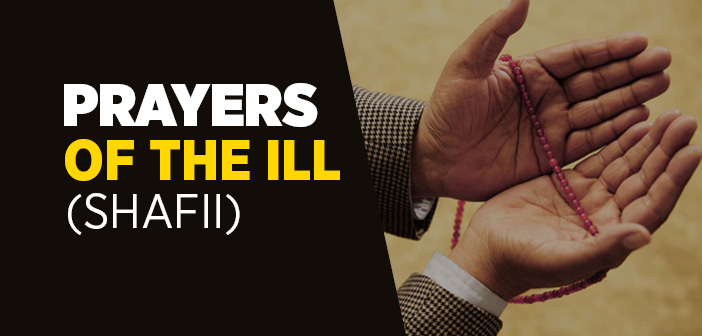What are the prayers of the ill? What are the dua of the ill?
Islam lays the burden of religious responsibilities upon believers to the extent of their abilities. In situations beyond someone’s strength, Islam has provided the principle of easiness. Being ill is among the reasons of easiness. Allah’s Messenger (pbuh) said, “Pray while standing and if you can’t, pray while sitting and if you cannot do even that, then pray lying on your side.”[1]
If a worshiper is able to stand up while leaning for support on another person, he must stand up if he only needs such a person’s support when rising at the beginning of each rak’ah. However, if he requires the other person’s support throughout the entire time he remains standing; he is not required to stand and may pray from a sitting position instead. One who can stand by leaning on something like wall or cane should perform the prayer standing even if he needs to lean on that thing throughout the entire time he remains standing.
If someone is able to stand part of the time – even if only long enough to utter beginning takbir- he must stand for as long as he is able, then continue the prayer from a sitting position. When praying from a sitting position, one is to sit up without leaning on anything for support if one is able to do so; if, however, one is only able to sit up with support, one must sit up while leaning on something rather than lying on one’s side. If, however, one is unable to sit up even with support, one may pray either lying on one side’s or on one’s back.
If an ill person is not able to stand during prayer or if he fears that his illness will last longer or get worse if he stands, he performs the prayer by sitting. He performs the bowing and prostration from the sitting position. If he cannot go down to prostration, then he performs them by head gestures. He moves his head down a little for the ruku’ and moves a little more than ruku’ for the prostration. It is not appropriate for a person who cannot prostrate on the ground to take something from the ground and prostrate on it.
Such a person may sit for the prayer any way he likes, though the iftirash style of sitting is a Sunnah. It is offensive in prayer to simply sit on the ground with palms down and knees drawn up, or to sit with legs outstretched when there is no excuse. One who is unable to turn towards the direction of qibla may perform the prayers any direction he is able to turn.
If someone is unable to sit up at all, he is to pray while lying on his side with his face and his chest toward the qiblah. It is an emulation of the Sunnah to lie on one’s right side rather than one’s left, but if one is not able to lie on his right side, he may lie on his left, bowing and prostrating from a reclining position if he is able to do so. Otherwise, he is to make gestures indicating bows and prostrations. If the worshiper is unable to lie on his side, he is to pray while lying on his back and with the soles of his feet toward the qiblah. When lying on one’s back, one is to raise one’s head with a pillow or some other object in order that one’s face may be directed toward the qiblah, then gesture with one’s head for the bows and prostrations. In this case, the gestures for the prostrations should be more pronounced than the gestures for the bows if one is able to make them thus; otherwise, it is not required. If someone is unable to gesture with his head, he may gesture with his eyelids, in which case it is not required that the gestures for the prostrations be more pronounced than the gestures for the bows. Moreover, if one is unable to do any of this, he may perform the pillars of the prayer in his heart. According to the Hanafi School, performing prayer by gesturing through eyelids is not valid. One who cannot gesture by moving the head should leave performing that prayer to a time until he gets better. If such a person’s situation continues for more than twenty-four hours, then he is not required to make up the prayers that he missed.
Performing the pillar by heart means to imagine performing those pillars and to recite necessary invocations and chapters. One who performs the prayer by heart is not required to make them up later when he gets well. However, it is recommended to re-perform such prayers after getting well enough to stand.
[1] Al-Bukhari, Taqsir al-Salat, 19
Source: Fiqh1 (According To The Shafi’i School Of Islamic Law), Erkam Publications





